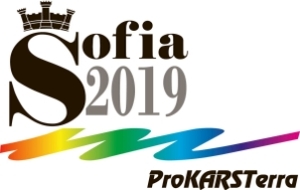
MAIN TOPICS
At the working meeting before the conference:
ProKARSTerra-NET: Scientific-practical Network for sustainable development of karst territories in the context of global changes (on the example of model karst geosystems)
At the conference
KARTS AND LEGISLATION
- Legislative framework for karst territories and sites. Normative basis for the protection of caves.
- Protected karst territories - status, categories and potential. Cognitive and educational importance.
- Standardization in the field of karst, caves and cave tourism.
- New strategies for economic use of karst and sustainable development of karst territories. Good practices.
- Inter-institutional and international co-ordination in karst legislation.
KARST AND TOURISM
- Recreation and tourism potential of karst territories.
- Traditions and tourism policies in karst areas.
- Planning, management, marketing and advertising of tourism in karst areas.
- Tourism products and tourism models in karst territories in the conditions of globalization. Cross-border forms of tourism.
- Good practices and original tourist destinations in karst regions.
- Forms of tourism in karst areas: - Cave tourism in well-developed show caves - normative basis, infrastructure, services offered, norms and safety measures. International network of tourist caves.
- Staff management policy for specialized tourism in karst areas - forms of training and good practices. Professional organizations. Qualifications and specializations. Formal and informal karst training through specialized forms of tourism.
- Karst sites of the World Natural and Cultural Heritage and the role of UNESCO in karst education and training.
- Promotion of karst: Information accessibility and modern forms of information. Marketing and advertising of karst objects and routes. Competitions, exhibitions, karst-themed competitions. Specialized web-based networks and sites.
- Tourism and sustainable development of karst territories - problems and benefits. Limitations of related to karst specifics when practicing tourism in karst areas. Consequences of tourism in karst areas and sites - risks, prevention, measures. Conflicts of interest. Visitor monitoring and control of tourist visits in tourist caves. The role of tourism in exploring and preserving karst.
- Extreme tourism in "wild caves" - regulation, risks, practices, control.
- Specific forms of cave tourism: concerts, religious (sacred) tourism, speleo-therapy.
- Specialized forms of tourism in karst areas: Eco-paths - state, problems, risks, and management. Culinary tourism. Educational tourism - potential, models and good practices. Traveling school of karst - an innovative form of karst education.
KARST AND MONITORING
- Model karst geosystems as bases for research on karst genesis and impacts of global change.
- Integrated karst monitoring systems - models and results.
- Specialized research infrastructure for monitoring. Underground (cave) laboratories.
- Research networks for monitoring and their role for the sustainable development of karst territories.
At the Round table:
Global change and the need for a new strategy for the sustainable development of karst territories, integrating science, management, business and education.
